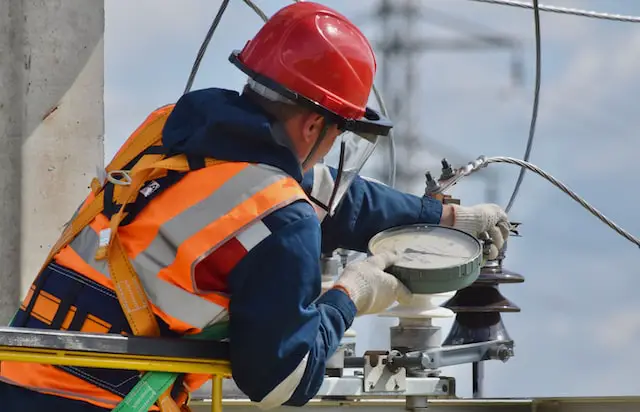In the 1950s and 1960s, many men entered skilled trades jobs such as electricians, plumbers, and carpenters. However, fewer men not entering skilled trades in these fields. This is likely due to several reasons.
One of the primary reasons is the shift in societal expectations and stereotypes. In the past, men were more likely to work in manual labor and skilled trades than women. But as the economy has moved toward being based on services and technology, more and more men are expected to get higher education and work in white-collar jobs. This has given skilled trades jobs a bad name, and many people see them as less desirable or less important than jobs that require a college degree.
Schools Steering Young Men Away From Skilled Trades
Another reason is the lack of awareness of the opportunities available in the skilled trades. Many young men may not be aware of the high demand for skilled trades workers or the earning potential and job security that these jobs can provide. Also, it’s possible that many schools and career counselors don’t give students enough information or resources about skilled trades as an option.
Some evidence suggests that schools steer young men away from skilled trades, but this isn’t always the case. Some schools may not give students enough information or resources about skilled trades as a career option. Instead, they may focus on careers that lead to college and forget about skilled trades.
Also, many schools don’t have career technical education (CTE) programs, which are meant to give students hands-on training and experience in different trades. If students don’t have access to CTE programs, they might not know about the opportunities in the skilled trades.
Moreover, according to some studies, teachers and guidance counselors may not be aware of the high earning potential and job security that skilled trade jobs can provide and may, therefore not recommend them as a viable option for students.
However, it’s important to note that this is not always the case. Some schools work hard to get students interested in skilled trade careers and give them the information and tools they need to do so. Additionally, some students may choose to pursue skilled trade jobs on their own, without any influence from the school.
In conclusion, while some schools may be steering young men away from skilled trades, it’s not a universal phenomenon, and there are schools working to promote skilled trade careers. It’s important to know about the opportunities in skilled trades and to do research on the job market, salary and benefits, and the specific requirements and certifications for each trade.
Skilled Trade Jobs For Men Go Lacking
Some skilled trades jobs are facing labor shortages and becoming hard to fill with new workers. This is partly due to the lack of young people entering these fields, but it is also due to the aging of the current workforce. Many skilled trades workers are nearing retirement age, and there are not enough new workers to replace them.
Are Community Colleges Failing To Offer Skilled Trades Training?
Community colleges have long been popular with students who want to get into skilled trades. Community colleges offer a wide range of vocational and technical programs, including those in skilled trades. Some people are worried, though, that community colleges don’t teach skilled trades well enough.
One of the main issues is that some community colleges may not have the resources or funding to provide the most up-to-date equipment and training for students in the skilled trades. Because of this, it can be hard for students to get the skills and experience they need to do well in these fields.
Another issue is that many community colleges are facing budget cuts and staffing shortages, which can lead to a reduction in the number of programs and courses offered. This can make it difficult for students to find the skilled trade training they need in their area.
Additionally, some community colleges may not have the capacity to offer the specific skilled trade programs that are in high demand in the local job market. This can make it difficult for students to find the training they need to enter the field they are interested in.
However, it’s important to note that this is not always the case, and many community colleges are still providing quality skilled trade training. Some community colleges have strong partnerships with local businesses and industries, which can provide students with hands-on experience and help ensure that they are trained in the skills that are in demand.
Some community colleges may have trouble teaching skilled trades, but it’s not a problem for all of them. It’s important to research the specific community colleges in your area to see what programs and resources they offer. Additionally, some students may choose to pursue skilled trade jobs through apprenticeships, vocational schools or on-the-job training.
What It Is The Role Of Unions In Promote Skilled Trade Job For Young People
Unions play an important role in promoting skilled trade jobs for young people. Here are a few ways unions can do so:
- Apprenticeship programs: Many unions sponsor apprenticeship programs that provide young people with hands-on training and experience in various skilled trade jobs. These programs are often jointly run by unions and employers and provide on-the-job training in addition to classroom instruction.
- Job placement: Unions can help young people find jobs in the skilled trades by connecting them with employers who are looking for skilled workers. Many unions have strong relationships with employers in various industries, which can make it easier for young people to find job opportunities.
- Advocacy: Unions can advocate for policies and programs that support the development of skilled trade jobs for young people. For example, unions may push for increased funding for vocational education programs in schools or for more apprenticeship opportunities.
- Job security and benefits: Unions negotiate with employers to secure fair wages and benefits for members, which can make skilled trade jobs more attractive to young people. Additionally, unions work to ensure job security for members, which can be especially important for young people who are just starting out in their careers.
- Professional development: Unions often provide opportunities for members to advance their skills, knowledge, and training in their trades, which can help young people to grow in their careers.
It’s important to note that unions vary in their specific focus and activities, and not all unions provide the same support for skilled trades. However, unions can play an important role in promoting skilled trade jobs for young people by providing training, job placement, advocacy, job security and benefits, and professional development opportunities.
What Are The Best Skilled Trade Jobs For Young Men To Pursue

There are many skilled trade jobs that can be great options for young men. Some of the best skilled trade jobs to pursue include:
- Electrician: Electricians install, maintain, and repair electrical systems in homes and businesses. They are in high demand and can earn a good salary with benefits.
- Plumber: Plumbers install, repair, and maintain plumbing systems in homes and businesses. They are also in high demand and can earn a good salary.
- Carpenter: Carpenters construct, install, and repair buildings and structures, including houses and commercial buildings. They can also earn a good salary and benefits.
- HVAC Technician: HVAC technicians install, maintain, and repair heating, ventilation, and air conditioning systems. They can earn a good salary with benefits and have good job security.
- Welders: Welders join metal parts together using various welding techniques. They can earn a good salary and have good job security.
- Auto mechanics: Auto mechanics repair and maintain vehicles. They can earn a good salary and have good job security.
- Machinist: Machinists operate and maintain machine tools to produce precision parts. They can earn a good salary and have good job security.
- Industrial Electrician: Industrial Electricians install, repair, and maintain electrical systems in industrial settings. They can earn a good salary and have good job security.
It’s important to note that these jobs can vary depending on the location and the specific trade. It’s also essential to research the job market, salaries, benefits, and specific requirements and certifications for each trade.
Final Thoughts On Men Not Entering Skilled Trades
Overall, the decline in men entering skilled trade jobs is likely a complex issue with many contributing factors. To encourage more men to enter these fields, we need to change the business and societal perceptions of skilled trades jobs, provide better information and resources for young men, and address the labor shortages that are facing these jobs.




